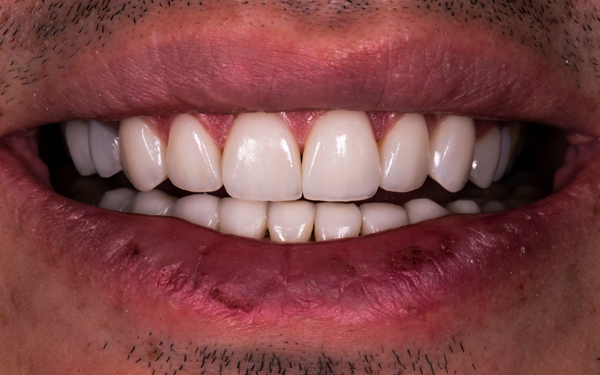Wisdom Teeth: Should They Be Removed?

While there are times when wisdom teeth grow in correctly and do not cause any oral health or cosmetic concerns, sometimes wisdom teeth grow in incorrectly. If wisdom teeth that grow in incorrectly begin to cause oral health concerns or have the potential to do so, they may need to be surgically removed.
When wisdom teeth should be removed
Many avoid the task of having their wisdom teeth out of fear of enduring the surgical procedure to remove them. However, there are times when wisdom teeth need to be removed. Below we will review a few scenarios in which it is likely wisdom teeth need to be surgically removed.
Teeth alignment issues
One of the most common reasons wisdom teeth need removal is that they are causing alignment issues with the other teeth. When wisdom teeth grow in incorrectly, they can place pressure upon other teeth, causing them all to shift — not just the ones closest to the wisdom teeth like you may assume. When this occurs, it can create the need for braces or cause misalignment of teeth that have already undergone a straightening procedure, which is know as orthodontic relapse.
Pain and swelling
It is normal for wisdom teeth coming through to cause some pain and perhaps even a little swelling of the gums. However, there are times when wisdom teeth can lead to a significant amount of pain and swelling, which lead to other, much larger oral health issues. In some instances when wisdom teeth grow in incorrectly, the pain and swelling may not go away without wisdom teeth extraction.
Increased risk of cavities
Wisdom teeth can also increase the risk of cavities if they grow in incorrectly. When wisdom teeth come in, it can place pressure on other teeth and cause the gums to swell, which may make it harder to properly clean certain areas of the teeth.
Additionally, there may be an increased risk of developing an oral infection due to the gum swelling often caused by wisdom teeth coming through incorrectly, which is why it is important to have a dentist monitor and check the status of wisdom teeth.
Jaw complications
It is not uncommon for cysts to develop around new teeth, especially wisdom teeth. When cysts form, they can cause serious jaw complications if they are not properly dealt with in a timely manner. In some cases, untreated oral cysts can hollow out the jaw and damage nerves. In particular, wisdom teeth that come through improperly can cause an increased risk of the individual developing cysts that could lead to jaw complications.
The bottom line
By taking a dental X-ray of wisdom teeth, dentists can determine whether wisdom teeth are going to grow in incorrectly before any damage occurs. In order to ensure wisdom teeth do not cause any cosmetic or oral health concerns, talk to a dentist about the status of your wisdom teeth.
Request an appointment here: https://www.queensfamilydental.com or call Queens Family Dental at (718) 690-9597 for an appointment in our Astoria office.
Check out what others are saying about our dental services on Yelp: .
Recent Posts
A wisdom tooth extraction is performed on the back molars, which are the last permanent teeth to erupt in the mouth. Many people do not have enough space on their jaws to accept the teeth without disrupting the position of the other teeth. This can cause many issues in the mouth.These issues necessitate the extraction…
Concerned about impacted wisdom teeth? Read on to learn more about this condition and how it is addressed. The third pair of molars at the rear of the mouth is known as the wisdom teeth. These teeth usually appear in late adolescence or early adulthood. Impaction is when a wisdom tooth becomes trapped beneath your…
Wondering if wisdom tooth extractions are in your near future? If you feel like your wisdom teeth are not growing in properly, then there is a good possibility that an experienced dentist will need to pull the tooth. Everyone is different, which means that some people have no problem at all when their wisdom teeth…
If you have a dental extraction at Queens Family Dental, it is important for you to realize that we perform this procedure on a regular basis. Since most people do not have room for a third set of molars, we perform an extraction on patients of various ages. They can come in sideways or impacted,…


